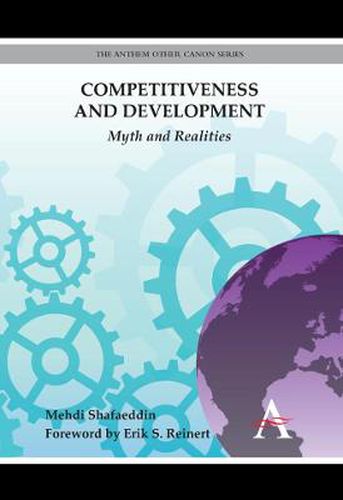Readings Newsletter
Become a Readings Member to make your shopping experience even easier.
Sign in or sign up for free!
You’re not far away from qualifying for FREE standard shipping within Australia
You’ve qualified for FREE standard shipping within Australia
The cart is loading…






In ‘Competitiveness and Development’, the author explains the confusion surrounding the concept of competitiveness in the context of developing countries; proposes policies for achieving competitiveness at a high level of development; examines its possibilities and constraints; and suggests policy changes necessary at the national and international levels. Shafaeddin illustrates how developed countries impose restrictive policies on developing countries through international financial institutions and the WTO, as well as regional and bilateral agreements, which limit their policy space for promoting dynamic comparative advantage in order to achieve competitiveness at a high level of development. Ultimately, such policies lock developing countries that are at early stages of development in specialization based on static comparative advantage and competitiveness at a low level of development.
$9.00 standard shipping within Australia
FREE standard shipping within Australia for orders over $100.00
Express & International shipping calculated at checkout
In ‘Competitiveness and Development’, the author explains the confusion surrounding the concept of competitiveness in the context of developing countries; proposes policies for achieving competitiveness at a high level of development; examines its possibilities and constraints; and suggests policy changes necessary at the national and international levels. Shafaeddin illustrates how developed countries impose restrictive policies on developing countries through international financial institutions and the WTO, as well as regional and bilateral agreements, which limit their policy space for promoting dynamic comparative advantage in order to achieve competitiveness at a high level of development. Ultimately, such policies lock developing countries that are at early stages of development in specialization based on static comparative advantage and competitiveness at a low level of development.